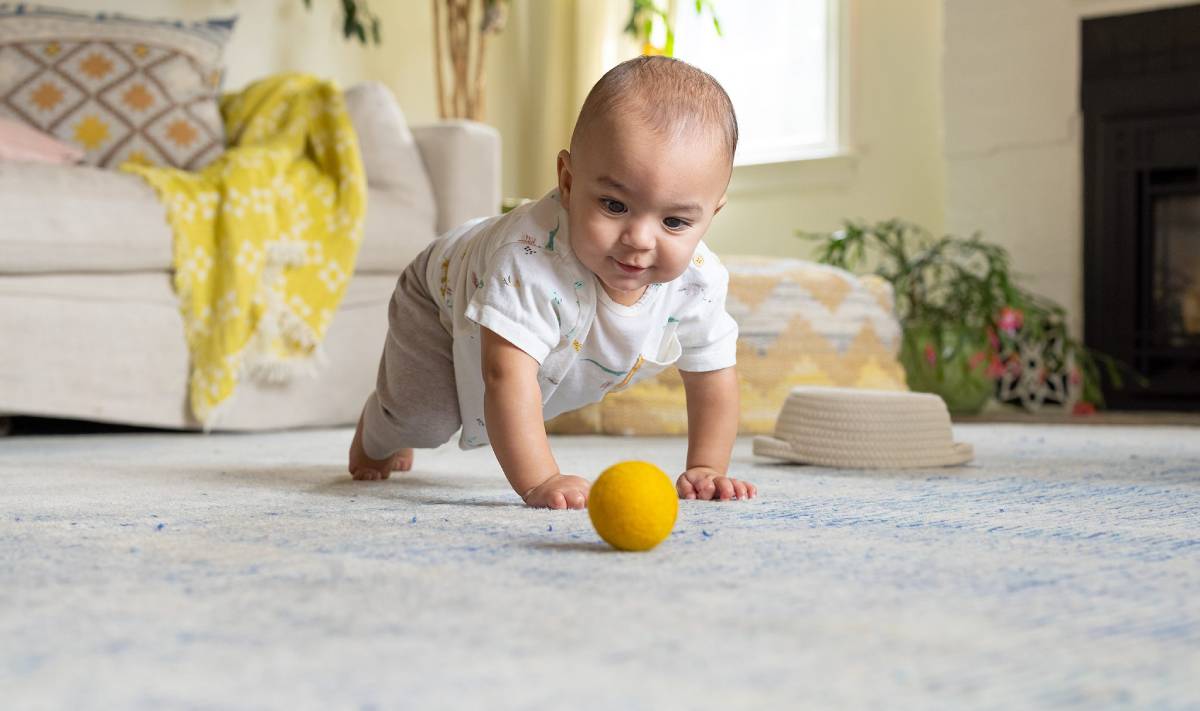The Parenting & Family Blog

Navigating Baby Milestones in the First Year
Embracing the First Year of Parenthood
There’s something magical about your baby’s first year. It’s a whirlwind of firsts: the first smile, the first laugh, the first step. But in between these precious moments lies an intricate map of growth known as baby milestones. Understanding what to expect and how to support your child during this formative year can help you feel more confident and connected as a parent.
In today’s digital age, the flood of online information can be overwhelming. Some parents feel pressure to ensure their child hits every milestone at the “right” time. But development isn’t linear, and each baby grows at their own pace. This blog post aims to be a reassuring and practical parenting guide for navigating the first year of your baby’s life. We’ll break down child development month by month, explore physical and emotional growth markers, and share expert-backed tips to support your baby through every stage.
Whether you’re a first-time parent or expanding your family, understanding these milestones will help you celebrate your child’s progress, spot areas for early support, and build a strong foundation for lifelong learning.
Understanding Baby Milestones
Baby milestones refer to the physical, cognitive, emotional, and social achievements most children reach around specific ages. They give us insight into a baby’s development but shouldn’t be used to compare children competitively.
Categories of Developmental Milestones
- Physical (Motor Skills): Rolling over, sitting up, crawling, walking.
- Cognitive: Recognition of sounds, problem-solving, curiosity.
- Social and Emotional: Smiling, bonding, responding to voices.
- Communication and Language: Babbling, gestures, first words.
Each of these areas is crucial and interlinked, shaping how your baby interacts with the world.
Month-by-Month Breakdown of Baby Milestones
Month 1-2: The Awakening Phase
What to Expect:
- Reflexes dominate movement (grasping, sucking).
- Begins to focus on faces and high-contrast patterns.
- May lift head briefly during tummy time.
- Begins to smile responsively.
Tips for Support:
- Use high-contrast toys and books.
- Practice gentle tummy time daily.
- Talk and sing to your baby often to stimulate bonding.
Month 3-4: Social Smiles and Early Sounds

What to Expect:
- Better head control.
- First real social smiles.
- Begins to coo and babble.
- Watches people and starts mimicking facial expressions.
Tips for Support:
- Make eye contact and smile back.
- Encourage cooing by talking and pausing for a response.
- Continue tummy time to build strength.
Month 5-6: Rolling Over and Exploring
What to Expect:
- Rolls over from tummy to back and vice versa.
- Begins to sit with support.
- Laughs and squeals.
- Reaches for and grasps objects.
Tips for Support:
- Use rattles and textured toys to engage.
- Place toys just out of reach to encourage movement.
- Read colourful books to stimulate vision and attention.
Month 7-8: Sitting, Crawling, and Stranger Anxiety

What to Expect:
- Sits without support.
- Starts crawling or scooting.
- Develops stranger anxiety.
- Responds to own name.
Tips for Support:
- Offer a safe space to explore crawling.
- Introduce peekaboo to help with object permanence.
- Maintain routines for reassurance.
Month 9-10: Cruising and Communication
What to Expect:
- Pulls to stand and may cruise along furniture.
- Uses gestures like pointing.
- Understands basic words like “no” or “bye-bye.”
- Shows preferences for toys.
Tips for Support:
- Baby-proof furniture and sharp corners.
- Encourage simple word repetition.
- Narrate your daily routines to build language.
Month 11-12: First Steps and First Words
What to Expect:
- Takes first independent steps.
- Says one or two simple words.
- Imitates adult behaviours.
- Displays more complex emotions (joy, frustration).
Tips for Support:
- Cheer them on with every attempt at walking.
- Celebrate their first words and keep the conversation going.
- Offer choices (e.g., red cup or blue cup?) to encourage decision-making.
Supporting Your Baby’s Development Holistically
Creating a Stimulating Home Environment
Babies thrive in safe, loving, and stimulating environments. Even simple things like talking during bath time or naming foods during bath time or naming foods as they develop healthy eating habits help your child learn.
Try this:
- Create a soft play area.
- Rotate toys weekly to renew interest.
- Use descriptive language during daily routines.
Responsive Parenting
This approach is about tuning into your baby’s cues and responding with warmth and consistency.
Benefits include:
- Enhanced trust and emotional security.
- Stronger parent-child attachment.
- Improved language and social skills.
Screen Time and Digital Exposure
In our tech-savvy world, it’s tempting to introduce screens early. The NHS and WHO advise no screen time for babies under 18 months (except for video chatting).
Alternative activities:
- Look at picture books together.
- Listen to gentle music.
- Use toys that make natural sounds or encourage movement.
When Milestones Are Delayed: What to Know
Some babies progress faster than others, and that’s normal. However, consistent delays in several areas might need further evaluation.
Common Signs to Watch
- No smiling or eye contact by 3 months
- No babbling by 6 months
- Difficulty sitting by 9 months
- No crawling or walking by 15 months
If in doubt, speak with your health visitor or GP. Early support can make a big difference.
Working with Professionals
Early intervention teams, occupational therapists, and paediatricians can offer assessments and personalised plans.
You can also access:
- Local children’s centres
- Parenting support groups
- Developmental check-ups through the NHS
Practical Tips for Parents in the Digital Age
Keeping Track Without Obsessing
Apps and trackers are helpful, but they shouldn’t replace intuition. Use them as tools, not benchmarks.
Recommended baby tracking apps:
- Baby Connect
- The Wonder Weeks
- Huckleberry
Managing Information Overload
With so much online advice, it’s easy to feel overwhelmed.
To stay grounded:
- Follow a few trusted parenting experts.
- Join supportive online communities.
- Take digital detox days to reset your focus.
Building a Support Network
Don’t go it alone. Connect with:
- Local mum or dad groups
- Online parenting forums
- Postnatal classes or baby yoga
Shared experience can be just as valuable as professional advice.
Conclusion: Celebrating Growth, One Milestone at a Time
Your baby’s first year is filled with magic, messes, and monumental growth. From tummy time triumphs to tentative first steps, each milestone marks a step toward independence and discovery.
By understanding these stages and supporting your child in a balanced, responsive way, you’re laying the groundwork for their confidence, resilience, and love of learning.
Remember: milestones are guides, not deadlines. Trust your instincts, be present for the little moments, and seek support when needed.
Ready to embrace every moment of your baby’s first year? Stay tuned for more parenting insights, subscribe to our newsletter, and share your milestone moments with us—we’d love to hear about your journey!









